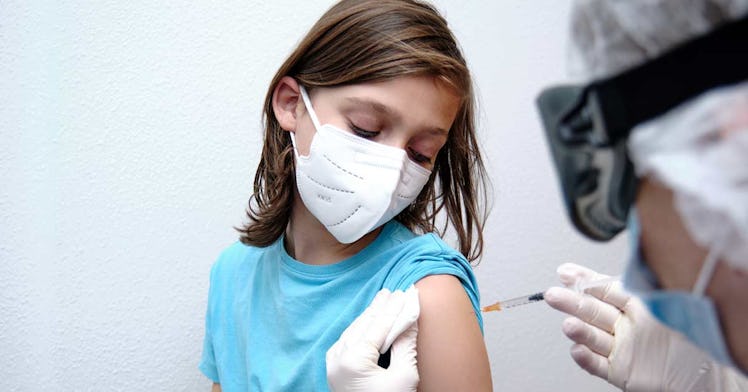Only One-Third Of Parents Will Get Their Kids A COVID Vaccine Right Away
Close to a quarter of parents aren't interested at all.

Right on the heels of the news that The Food and Drug Administration (FDA) will likely authorize the usage of the Pfizer-BioNTech COVID vaccine for kids aged 12 and up sometime soon, a new survey shows there’s some huge hesitancy in many parents. Here’s what we know.
The Kaiser Family Foundation released a new survey that highlights that most parents are hesitant to get their kids vaccinated against COVID-19. In mid-April, Pfizer asked the FDA for emergency approval to authorize the vaccine in kids between the ages of 12 to 15. Currently, the vaccine is available for anyone 16 and up. Still, there isn’t one approved for the younger groups in the United States yet.
The results of the vaccine trials on kids are promising, and it’s looking more and more like the vaccine will be approved for use in the younger groups soon. If approved quickly, 10 million kids in this age bracket could be vaccinated fully before school starts in the fall. But not all parents are going to be jumping at the chance.
According to the Kaiser Family Foundation survey published on May 6, 2021, only one-third of parents who have at least one child between the ages of 12 and 15 said they would get their child vaccinated right away.
An additional 26 percent of parents said they’d likely take a “wait and see” approach. They will likely be waiting to have their kids vaccinated until there’s more real-world information on its impact, including any side effects.
On top of this, 18 percent of parents who have a child between the ages of 12 and 15 said they would only have their child vaccinated if required before entering the in-person public school system.
Close to a quarter of parents (23 percent) who took part in the survey said they would “definitely” not have their child vaccinated against COVID-19.
“Perhaps unsurprisingly, parents’ intentions for vaccinating their kids largely line up with their own intentions for getting the COVID-19 vaccine themselves,” the report stated.
This article was originally published on